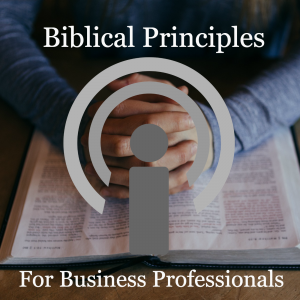Biblical Brinciples for Business Professionals

Whatever is Honorable - Biblical Principles for Business Professionals
Finally, brothers, whatever is true, whatever is honorable, whatever is right, whatever is pure, whatever is lovely, whatever is of good repute, if anything is excellent or worthy of praise, think on these things. — Philippians 4:8 (emphasis added).
As we continue to look at this “whatever” passage, we see that another thing on which we should think is “whatever is honorable.” The New International version, as well as some others, uses the word “noble.”
Paul also uses the same word that is used for “honorable” in 1 Timothy 3:8, saying the deacons, like other leaders, should be “men of dignity,” or in other words, “honorable” men.
Bible commentator Albert Barnes speaks to this concept, saying “The word was originally used in relation to the gods, and to the things that pertained to them, as being worthy of honor or veneration . . . The word, therefore, does not express precisely what the word ‘honest’ does with us, as confined to dealings or business transactions, but rather has reference to what was regarded as worthy of reputation or honor; what there was in the customs of society, in the respect due to age and rank, and in the contact of the world, that deserved respect or esteem. It includes indeed what is right concerning business transactions, but it embraces much more, and means that the Christian is to show respect to all the venerable and proper customs of society when they did not violate conscience or interfere with the law of God.”
So, Whatever is “honorable/noble” includes being honest in business transactions, but it means much more. We need to think on those things that are worthy of a good reputation or is honorable. If someone or something is worthy of respect, we are to respect that person or thing. This goes a long way in the workplace, as employers, employees, co-workers all appreciate this characteristic in others.
I like what Steven J. Cole said concerning this: “Christians are to take life seriously. We are not to be silly goof-offs, who treat life as a perpetual joke. We live in light of eternity, keeping in mind the uncertainty of this short life and the reality of heaven and hell.” – https://bible.org/seriespage/lesson-25-christian-s-thought-life-philippians-48
He also states that this doesn’t mean we can’t appreciate appropriate, clean humor. However, when humor gets out of hand and reverts to coarse joking, sexual innuendo and other inappropriate behaviors, it creates an ungodly atmosphere.
As Christians, we need to think about what is honorable, or noble because in doing so, we also show respect to God.
As Christians in the marketplace, we should not put our thoughts on undignified things, on the mundane, silly, earthly things. After all, “our citizenship is in heaven, from which also we eagerly wait for our Savior. . .” (Philippians 3:20). Also, as Colossians 3:2 says, “Set your minds on the things above, not on the earthly things.” Right before that verse, the Apostle Paul says to “seek the things above.”
Seek, in this context, means to “get to the bottom of the matter.” It is the idea of seeking something in order to find and often involves meditation and reason. In a previous post, we looked at the phrase at the end of Philippians 4:8, “think on these things.” We realize that when Paul uses the word “think,” it means to “take into account,” “reckon,” or “reason to a logical conclusion.” Therefore, when we “think” about, or “dwell on” something in this sense, it means that we are to reach a logical conclusion concerning those excellent things.
This is part of the seeking process. When we “think on these things” and “seek the things above,” we will find what we are looking for. After all, as Jesus promised, “seek and ye shall find.”
Today’s Takeaway: We need to both think on and seek those things which are honorable instead of dwelling on the mundane.






 Visit Podcast Website
Visit Podcast Website RSS Podcast Feed
RSS Podcast Feed Subscribe
Subscribe
 Add to MyCast
Add to MyCast